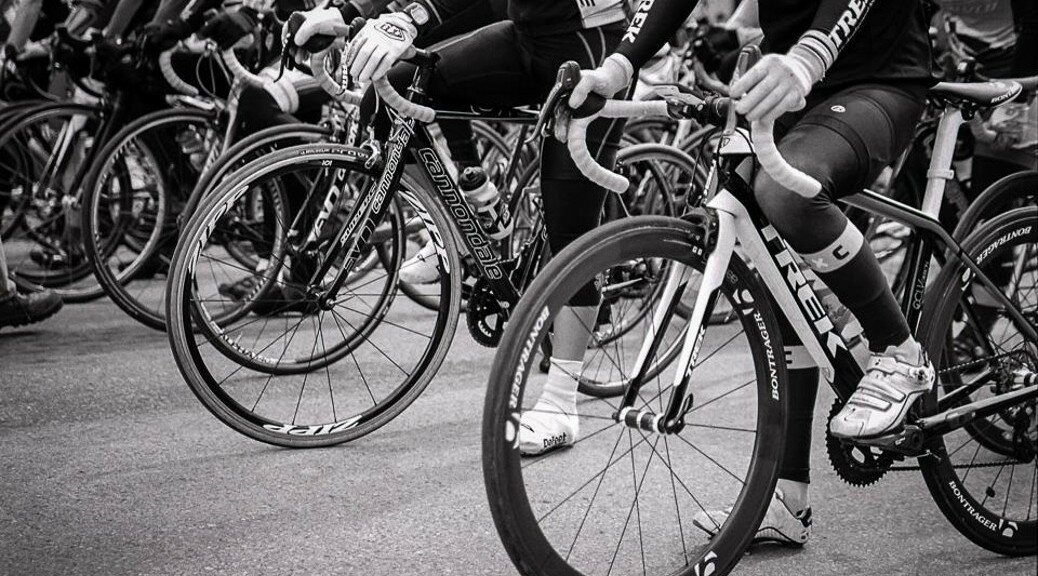Introduction
As collegiate cyclists, we know all too well the demands and challenges of our sport. The intense training sessions, grueling races, and the drive to constantly improve can take a toll on our bodies and minds. That's why recovery is not just a luxury but an essential aspect of our athletic journey. In this article, we will explore the significance of recovery for collegiate cyclists and how it can enhance our performance, prevent injuries, and promote overall well-being.
Understanding the Physiological Demands of Collegiate Cycling
Collegiate cycling pushes our bodies to their limits. The demanding nature of training and races places tremendous physical stress on our muscles, joints, and cardiovascular system. Understanding the physiological stress and fatigue we experience is crucial to recognizing the importance of recovery. When we push ourselves to the brink, recovery becomes the vital process that restores and optimizes our body's performance.
The Benefits of Recovery for Collegiate Cyclists
Enhanced Performance:
Recovery plays a pivotal role in improving our power output, endurance, and speed. By allowing our bodies to repair and rebuild, we can achieve higher levels of performance and reach our cycling goals.
Injury Prevention:
Overuse injuries are a constant threat to collegiate cyclists. Incorporating recovery into our training regimen reduces the risk of injuries, promotes musculoskeletal health, and helps us stay on the bike for longer, injury-free seasons.
Mental Well-being:
Cycling is as much a mental battle as it is a physical one. Recovery provides the necessary respite to alleviate stress, combat fatigue, and prevent burnout. By prioritizing recovery, we can maintain focus, motivation, and a positive mindset. Therefore, before the competition, it is important to avoid stress and not overload yourself with unnecessary worries. If during this period you need to urgently complete an urgent task, then it is better to turn to the literary analysis paper writing service https://essays-panda.com/literary-analysis-writing.
Effective Recovery Strategies for Collegiate Cyclists
A. Rest and Sleep:
Quality sleep is the cornerstone of recovery. It allows our bodies to repair damaged tissues, regulate hormones, and recharge for the next day's challenges. Optimize your sleep quality and quantity by establishing a consistent sleep schedule, creating a conducive sleep environment, and practicing relaxation techniques.
B. Nutrition and Hydration:
Proper nutrition fuels our recovery and performance. Ensure you're consuming a balanced diet rich in nutrients, including carbohydrates, protein, and healthy fats. Hydration is equally vital, so drink plenty of water and electrolyte-rich fluids to replenish what you lose during intense training sessions.
C. Active Recovery:
Engaging in low-intensity activities during recovery periods enhances blood circulation, flushes out metabolic waste, and promotes muscle relaxation. Light cycling, gentle stretching, and yoga are excellent choices for active recovery.
D. Cross-Training:
Incorporating other forms of exercise into our training routine offers multiple benefits. It helps prevent overuse injuries, improves overall fitness, and provides a mental break from cycling. Consider activities like swimming, strength training, or Pilates to complement your cycling regimen.
E. Massage and Self-Care Techniques:
Massage therapy and self-care practices can aid in recovery by reducing muscle tension, improving circulation, and promoting relaxation. Try using foam rollers, massage balls, or seek professional massage services to reap the benefits.
F. Mental Recovery:
Our minds need recovery just as much as our bodies. Prioritize mental relaxation and stress management techniques such as mindfulness meditation, deep breathing exercises, or engaging in hobbies that bring you joy.
Time Management and Recovery
As student-athletes, finding a balance between academics and athletics can be challenging. However, it's crucial to prioritize recovery amidst busy schedules. Efficient time management is key to accommodating recovery needs. Plan your study and training sessions effectively, utilize breaks for active recovery or relaxation, and remember that finding balance in both areas will benefit your long-term success.
Conclusion
Recovery is not an indulgence; it is a necessity for collegiate cyclists. By understanding the physiological demands of our sport and recognizing the benefits of recovery, we can optimize our performance, prevent injuries, and promote our overall well-being. Incorporate effective recovery strategies into your routine, prioritize rest, nutrition, and mental rejuvenation. Remember, your journey as a collegiate cyclist is not just about pushing harder; it's about recovering smarter. Embrace the power of recovery and witness the transformation it brings to your athletic pursuits.

Pingback: The Morning Pride: March 28, 2014 | Omaha Free Press
Pingback: The Morning Pride: March 28, 2014
Pingback: Policies Are For Progress | ECCC Blogosphere
Pingback: Joining the Conversation | the T cycle